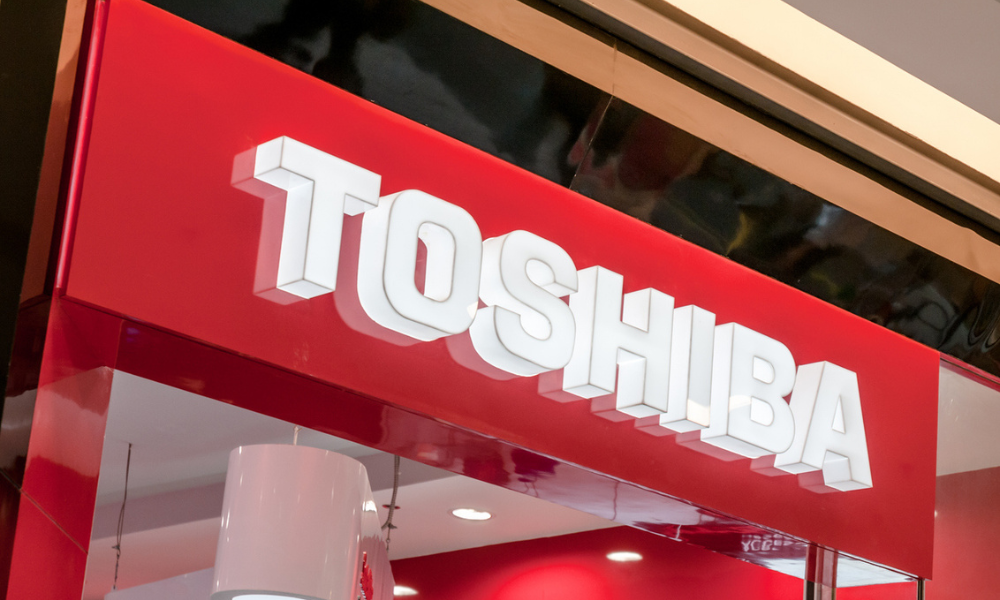The director of life sciences, HR and business support at Randstad looks at the “quintessential” list of traits that every HRD needs for survival and success
The modern day HR function is evolving with the speed of business and technology. The rate of change dictates the function, form and focus of HR. The question then begs - what is the ideal archetype of a successful HRD in this day and age?
The Randstad Workpocket, an essential guide outlining key HR practices and employment legislation updates in Singapore, addresses what the role of HR is and how to best cope with today’s challenges. It alludes to the fact that perhaps the best way for HR to thrive is to shape their behaviours to a quintessential list for survival and success.
The Chartered Institute of Personnel and Development (CIPD), the professional body for HR and people development, sets out a professional map for HR and associated behaviours to be certified as fully competent. The behavioural traits are ranked on a rising scale or banding (1-4) to describe behaviour from a basic level to a deep-rooted and seasoned practitioner. These standards should be the general guideline for any HR to work towards to ensure that they stay relevant.
Curious: Is future focused, inquisitive and open-minded; seeks out evolving and innovative ways to add value to an organisation.
The rate of change in businesses results in the need for HR to respond adequately and in a timely manner to enable the organisation to cope. HR is expected to function proactively rather than act in retrospect. Having a curious mindset allows HR to engage the business ahead of time, set the vision to propel the organisation forward and think creatively around policies and procedures.
Decisive Thinker: Demonstrates the ability to analyse and understand data and information quickly. Uses information, insights and knowledge in a structured way to identify options, make recommendations and make robust, defendable decisions.
HR is often the driver of tough people decisions. It is constantly in a position of having to weigh out information and arrive at a competent policy. However, if this is not done efficiently and in a structured manner, the purpose suffers. Being decisive in your thinking process is key to being effective. The ability to sift through tangible and intangible data, analyse available information, structure it coherently and act decisively is a fundamental requirement.
Skilled Influencer: Demonstrates the ability to influence to gain the necessary commitment and support from diverse stakeholders.
The best laid out plans are lost in translation if HR is not able to get buy-in from the critical mass and key stakeholders. The HR function has shifted from being a governance role to a solution-focused business partner, a requirement that is increasingly becoming more and more important. This calls for the HR individual to be able to be assertive, compelling, communicative, sensitive, persuasive and skilled at driving others towards the intended behaviours and goals.
Personally Credible: Builds and delivers professionalism through combining commercial and HR expertise to bring value to the organisation, stakeholders and peers.
HR needs a strong reliable brand. Effectiveness comes from having credibility, being respected for your craft and showing the highest level of professionalism. HR should function as the epitome of right behaviours and values that the organisation intends to drive. Credibility is the currency in which HR is able to get buy-in, drive behaviour and ensure compliance and governance. This ranks superior amongst all other qualities mainly because job security, ethics, compliance and morality are all key differentiating factors on why some organisations are built to last more than others, particularly with the demands of profitability and the need to be quick and dirty to keep pace with growth. If HR is viewed as credible organisation within, then the belief resides that the organisation will be guided by the right people.
Collaborative: Works effectively and inclusively with a range of people, both within and outside of the organisation.
Diversity, change, development and learning are all key drivers in HR. These are best achieved when collaboration is at the root of the practice and policy making. On a simplistic level, it is about understanding the need to partner with others, be sensitive and show respect. At its height, HR will take an approach to always co-create a solution with the business and be called upon to take a seat in the boardroom continuously because of the willingness to play well with others.
Driven to Deliver: Demonstrates determination, resourcefulness and purpose to deliver the best results for the organisation.
HR often struggles to justify and quantify its existence and purpose, simply because it is the composite function of all people issues. This often blurs the connection to a direct function making organizations often sceptical of the ROI in HR. When HR demonstrates behaviour of being motivated towards tangible outcomes and goals, organizations are more prepared to champion HR. Your personal brand and value increases immensely when you are seen to be someone who can be counted on to drive outcomes, achieve goals and deliver results.
Courage to Challenge: Shows courage and confidence to speak up skilfully, challenging others even when confronted with resistance or unfamiliar circumstances.
HR is not a mere token function. When HR exists to function as a secondary element in an organisation, its effectiveness reduces over time. When HR personnel are courageous in their behaviour, are not afraid to challenge at the highest authority and make sound credible arguments, they are at their height. This comes from having courage in your convictions and acting on them objectively, professionally and in a clear and concise way.
Role Model: Consistently leads by example. Acts with integrity, impartiality and independence, balancing personal, organisational and legal parameters.
This behaviour is largely connected to being personally credible. It is about the brand of HR that is displayed and if HR can be looked to for ideal practice and behaviour. This often translates to having your own strong core values and boundaries, being able to promote and represent others well and being the ‘go to’ person for difficult matters – conflict resolution, inconsistent behaviour, ethical issues – and promoting correct practices.
About the author: Jaya Dass is the director of life sciences, HR and business support at Randstad Singapore
The Randstad Workpocket, an essential guide outlining key HR practices and employment legislation updates in Singapore, addresses what the role of HR is and how to best cope with today’s challenges. It alludes to the fact that perhaps the best way for HR to thrive is to shape their behaviours to a quintessential list for survival and success.
The Chartered Institute of Personnel and Development (CIPD), the professional body for HR and people development, sets out a professional map for HR and associated behaviours to be certified as fully competent. The behavioural traits are ranked on a rising scale or banding (1-4) to describe behaviour from a basic level to a deep-rooted and seasoned practitioner. These standards should be the general guideline for any HR to work towards to ensure that they stay relevant.
Curious: Is future focused, inquisitive and open-minded; seeks out evolving and innovative ways to add value to an organisation.
The rate of change in businesses results in the need for HR to respond adequately and in a timely manner to enable the organisation to cope. HR is expected to function proactively rather than act in retrospect. Having a curious mindset allows HR to engage the business ahead of time, set the vision to propel the organisation forward and think creatively around policies and procedures.
Decisive Thinker: Demonstrates the ability to analyse and understand data and information quickly. Uses information, insights and knowledge in a structured way to identify options, make recommendations and make robust, defendable decisions.
HR is often the driver of tough people decisions. It is constantly in a position of having to weigh out information and arrive at a competent policy. However, if this is not done efficiently and in a structured manner, the purpose suffers. Being decisive in your thinking process is key to being effective. The ability to sift through tangible and intangible data, analyse available information, structure it coherently and act decisively is a fundamental requirement.
Skilled Influencer: Demonstrates the ability to influence to gain the necessary commitment and support from diverse stakeholders.
The best laid out plans are lost in translation if HR is not able to get buy-in from the critical mass and key stakeholders. The HR function has shifted from being a governance role to a solution-focused business partner, a requirement that is increasingly becoming more and more important. This calls for the HR individual to be able to be assertive, compelling, communicative, sensitive, persuasive and skilled at driving others towards the intended behaviours and goals.
Personally Credible: Builds and delivers professionalism through combining commercial and HR expertise to bring value to the organisation, stakeholders and peers.
HR needs a strong reliable brand. Effectiveness comes from having credibility, being respected for your craft and showing the highest level of professionalism. HR should function as the epitome of right behaviours and values that the organisation intends to drive. Credibility is the currency in which HR is able to get buy-in, drive behaviour and ensure compliance and governance. This ranks superior amongst all other qualities mainly because job security, ethics, compliance and morality are all key differentiating factors on why some organisations are built to last more than others, particularly with the demands of profitability and the need to be quick and dirty to keep pace with growth. If HR is viewed as credible organisation within, then the belief resides that the organisation will be guided by the right people.
Collaborative: Works effectively and inclusively with a range of people, both within and outside of the organisation.
Diversity, change, development and learning are all key drivers in HR. These are best achieved when collaboration is at the root of the practice and policy making. On a simplistic level, it is about understanding the need to partner with others, be sensitive and show respect. At its height, HR will take an approach to always co-create a solution with the business and be called upon to take a seat in the boardroom continuously because of the willingness to play well with others.
Driven to Deliver: Demonstrates determination, resourcefulness and purpose to deliver the best results for the organisation.
HR often struggles to justify and quantify its existence and purpose, simply because it is the composite function of all people issues. This often blurs the connection to a direct function making organizations often sceptical of the ROI in HR. When HR demonstrates behaviour of being motivated towards tangible outcomes and goals, organizations are more prepared to champion HR. Your personal brand and value increases immensely when you are seen to be someone who can be counted on to drive outcomes, achieve goals and deliver results.
Courage to Challenge: Shows courage and confidence to speak up skilfully, challenging others even when confronted with resistance or unfamiliar circumstances.
HR is not a mere token function. When HR exists to function as a secondary element in an organisation, its effectiveness reduces over time. When HR personnel are courageous in their behaviour, are not afraid to challenge at the highest authority and make sound credible arguments, they are at their height. This comes from having courage in your convictions and acting on them objectively, professionally and in a clear and concise way.
Role Model: Consistently leads by example. Acts with integrity, impartiality and independence, balancing personal, organisational and legal parameters.
This behaviour is largely connected to being personally credible. It is about the brand of HR that is displayed and if HR can be looked to for ideal practice and behaviour. This often translates to having your own strong core values and boundaries, being able to promote and represent others well and being the ‘go to’ person for difficult matters – conflict resolution, inconsistent behaviour, ethical issues – and promoting correct practices.
About the author: Jaya Dass is the director of life sciences, HR and business support at Randstad Singapore





